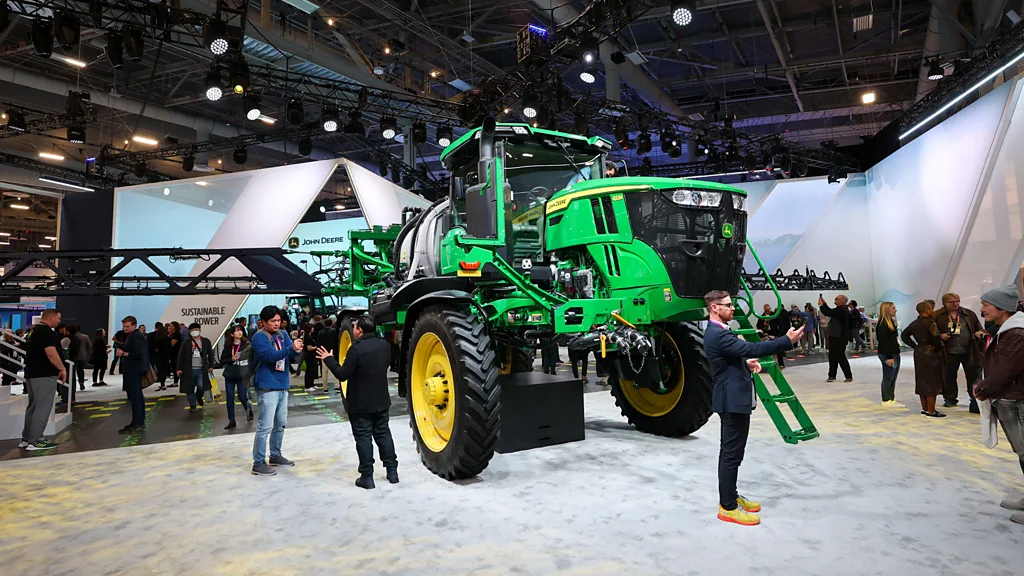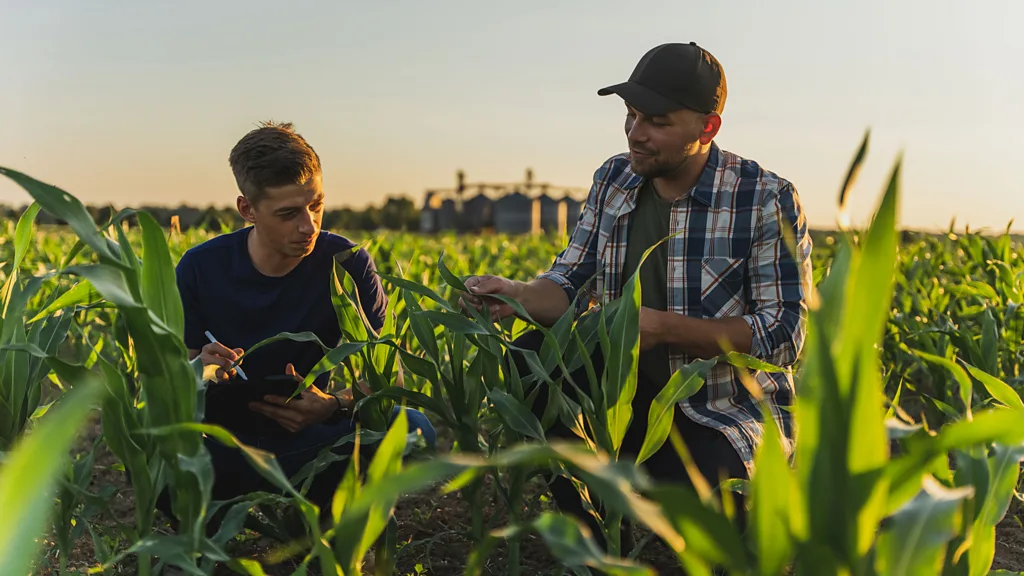-
Agriculture is a dynamic sector, and farmers all around the world now rely heavily on technology as a tool. Robots and artificial intelligence (AI) are two of the newest technologies that are changing traditional farming practices. The present essay delves into the rationale behind US farmers’ increasing dependence on robots and artificial intelligence (AI) to enhance productivity, overcome challenges, and uphold sustainable agricultural practices.
-
Challenges Faced by US Farmers
umerous challenges, including a shortage of labor, increased operational costs, and the adverse consequences of climate change, confront US farmers. These factors have compelled farmers to find innovative solutions to maintain the sustainability and profitability of their businesses.
-
Role of AI in Agriculture
AI is essential to modern agriculture since it has made precision farming approaches feasible. Using data-driven insights and analytics, farmers may improve crop management practices, such as fertilization, timing of irrigation, and pest control, to increase yields and optimize resource usage.
-
Integration of Robotics in Farming
Automation of labor-intensive farming tasks opens up previously unheard-of opportunities for automation through robots. These technologies decrease the need for human labor and streamline procedures, increasing overall efficiency. These technologies include autonomous tractors for planting and harvesting, and robotic arms for focused weed control.
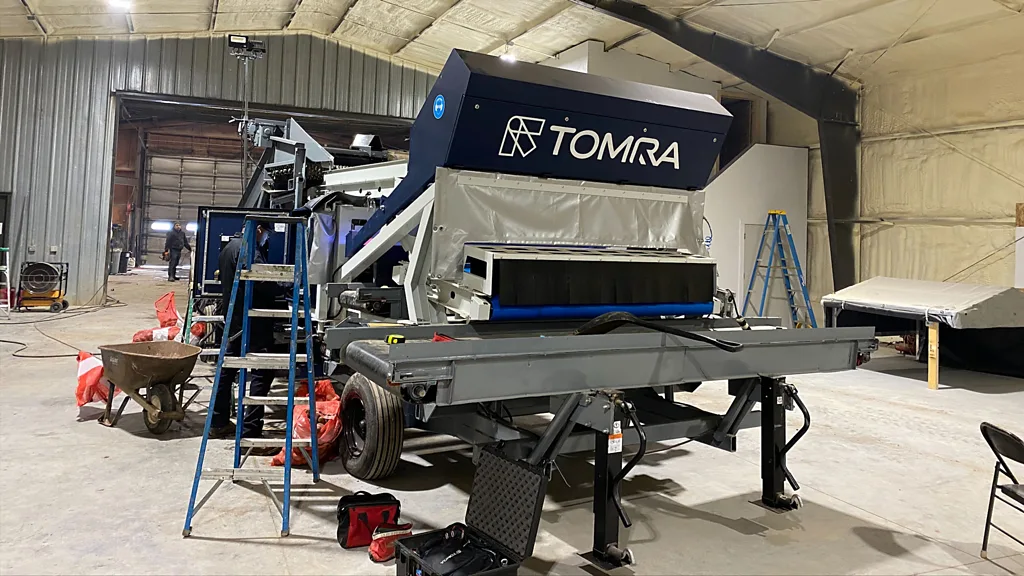
-
Benefits of Adopting AI and Robotics
For US farmers, the use of robots and AI offers a number of advantages. Notably, by reducing chemical consumption and improving resource allocation, it promotes ecologically friendly farming practices and increases operational efficiency and reduces costs through labor savings.
-
Case Studies of Successful Implementation
AI and robots have been adopted by many US farms with impressive results. For example, a California vineyard used AI-powered drones to monitor vine health and optimize harvest dates, which produced grapes of greater quality and more profit.
-
Future Trends in Agricultural Technology
Promising developments in AI algorithms and robotic applications are anticipated in the field of agriculture technology. By advancing farming techniques’ productivity, resilience, and sustainability, these innovations hope to propel the sector toward a future with more sophisticated technology.
-
Challenges and Concerns
Notwithstanding the advantages, there are still obstacles to the broad use of robots and artificial intelligence in agriculture, including high startup costs, complicated technological requirements, and worries about cybersecurity and data privacy. In order to guarantee equal access to these technologies across varied farming communities, it is imperative that these impediments be addressed.
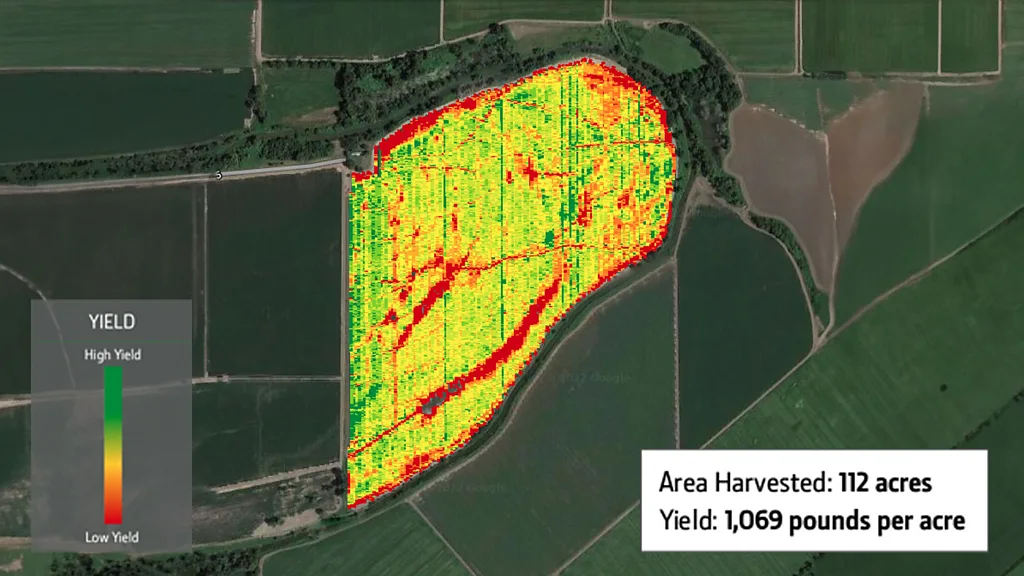
-
Government Support and Initiatives
Governments are spending more in R&D and deployment projects as they realize the revolutionary potential of robots and AI in agriculture. Policymakers hope to ensure ethical and responsible use of these technologies while facilitating their integration through financing programs and regulatory frameworks.
-
Conclusion
In conclusion, US farmers’ approach to agriculture has fundamentally changed as a result of the introduction of robots and AI. Farmers may adopt sustainable techniques for food production in the future, increase output, and overcome current obstacles by utilizing these technology.
https://youtu.be/4qrlFse5I1U?si=AmzYGkrBlxksLohW
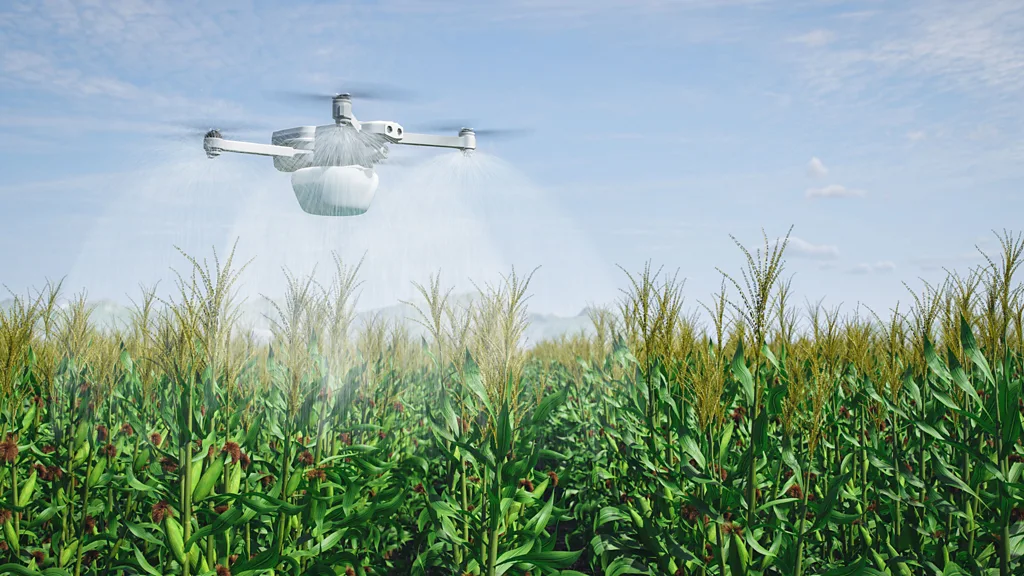
-
FAQs
-
Will robots and artificial intelligence replace human labor in farming?
Even if robots and artificial intelligence (AI) can automate some processes, human participation is still necessary for complicated operations and decision-making in agriculture.
-
How do small-scale farmers get access to robots and AI technologies?
In order to meet the demands of small-scale farmers, efforts are being made to create scalable and reasonably priced solutions that also promote fair access to technology.
-
What are the advantages for the environment of using robots and AI in agriculture?
Precision farming techniques are made possible by AI and robots, which also minimize environmental effect, use less chemicals, and support sustainable resource management.
-
Does farming that mainly relies on AI and automation have any risks?
Possible hazards encompass reliance on technology, loss of employment, and moral dilemmas related to data processing and algorithmic prejudices.
-
How can farmers keep themselves informed about the most recent developments in agricultural technology?
To remain up to date on new technology and best practices, farmers should take advantage of tools including online forums, industry conferences, and extension services.
